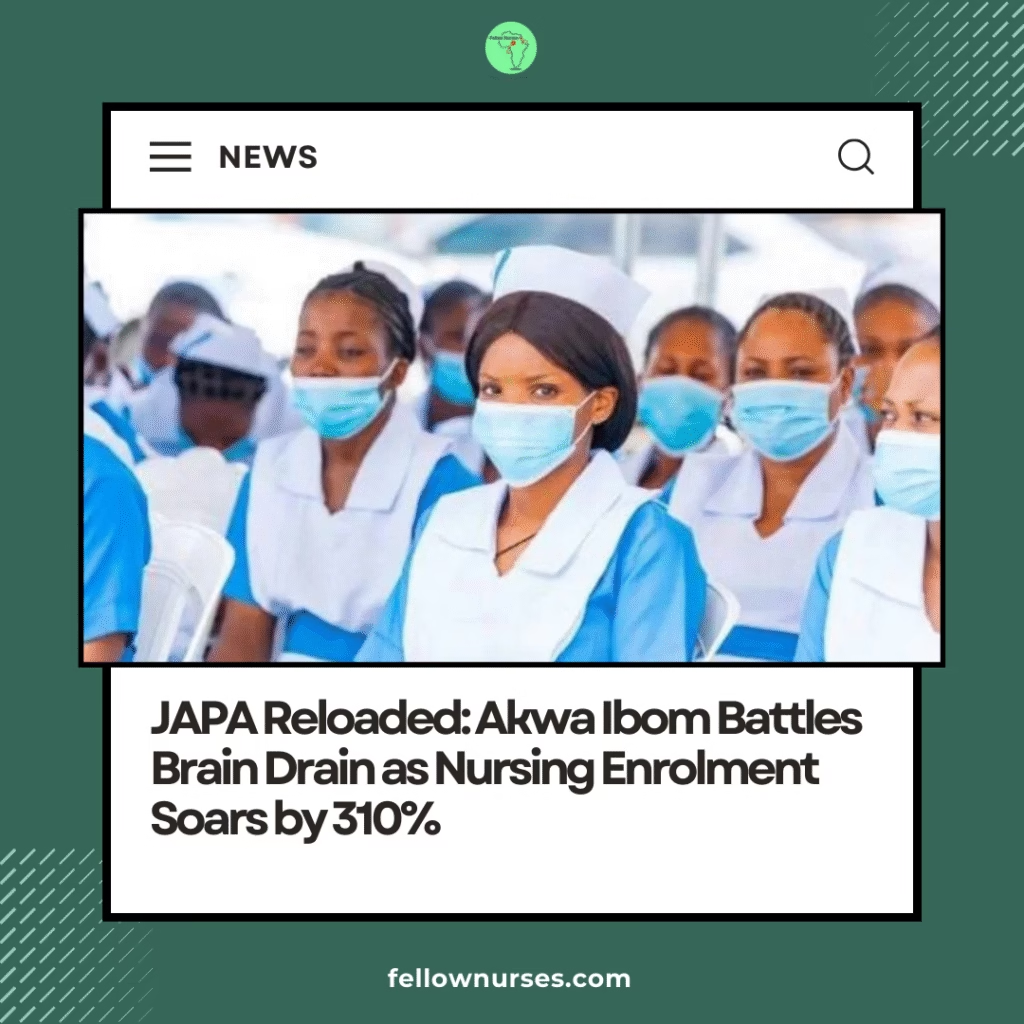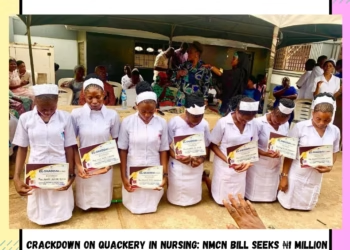Fellow Nurses Africa News, 28 August, 2025.

JAPA Reloaded: Akwa Ibom Battles Brain Drain as Nursing Enrolment Soars by 310%
Nigeria has witnessed an unprecedented 310% surge in yearly enrolment into nursing programmes, a development the Federal Government attributes to its push for enhanced healthcare education. Official data shows enrolment skyrocketing from 28,000 to 115,000 students in a short timeframe, signaling a transformative shift in the sector.
Speaking in Abuja, the Minister of Education, Dr. Maruf Olatunji Alausa, highlighted the achievement as a cornerstone of President Bola Tinubu’s Renewed Hope Agenda, which emphasizes revitalizing education and healthcare to bolster Nigeria’s workforce.
Why the Nursing Enrolment Boom Matters
This surge is a game-changer for Nigeria’s healthcare system, which grapples with workforce shortages, high patient-to-nurse ratios, and the persistent emigration of skilled professionals. The influx of nursing students is expected to:
- Enhance healthcare delivery nationwide.
- Alleviate pressure on overstretched healthcare workers.
- Improve access to quality care in underserved areas.
Akwa Ibom’s Bold Move to Curb Medical Brain Drain
In a proactive response to the “Japa” trend—mass emigration of professionals—Akwa Ibom State has introduced measures to retain its healthcare talent. The Head of Service, Effiong Essien, announced that all state-sponsored medical trainees are now bonded to serve within Akwa Ibom for a stipulated period, ensuring the state recoups its training investments.
Additionally, the state plans to recruit 600 medical personnel and 100 occupational safety officers into the newly established Department of Occupational Safety under the Office of the Head of Service. “Every trainee sponsored by the government will serve for a period that justifies our investment,” Essien stated.
The Road Ahead: Building a Resilient Health Workforce
The surge in nursing enrolment, paired with Akwa Ibom’s retention strategies, marks a pivotal step toward addressing Nigeria’s chronic health worker shortage. However, experts caution that sustaining this progress requires investment in modern training facilities, adequate infrastructure, and competitive salaries to discourage professionals from seeking opportunities abroad.
With these efforts, Nigeria is not only addressing its domestic healthcare needs but also positioning itself as a potential contributor to the global nursing workforce, turning the tide on brain drain.
Fellow Nurses Africa is the independent voice of African nursing, we educate, inform and support the nursing profession.










